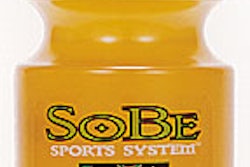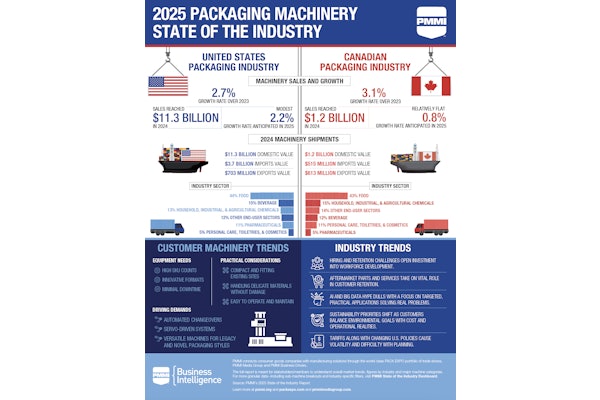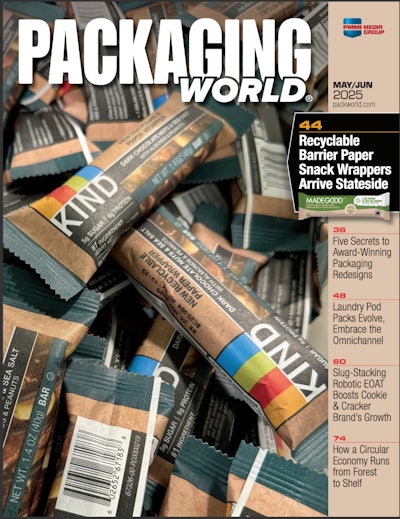For several years, a consumer movement has been active in Italy whose goal is to replace stay-on tabs on beverage cans. The tabs represent a potential health threat because when they’re pressed into a beverage during opening, they can introduce possibly unhealthy substances into the product.
As recently as last November, an administrative regional court in Italy’s Lazio region issued a ruling that the tab in its current configuration is indeed unhealthy and must be changed.
What all of this means, and how it will affect beverage canners in Italy, is unclear to say the least. After all, policies and guidelines, even rulings issued by courts, are not always easy to implement.
What is clear, however, is that part of the consumer base in Italy is unhappy with the stay-on tab. That’s enough to galvanize some companies to take action, among them Pepsi-Cola.
For nearly three years now, Pepsi-Italy has had Acqua Minerale San Benedetto, its contract canner in the north of Italy, putting high-impact polystyrene “covers” over the tops of single-serve cans. This is done by thermoforming/ application equipment from Sacmi (Imola, Italy). The machine thermoforms roll-fed HIPS, which in Pepsi’s case is 0.35-mm thick, turning the HIPS into can covers applied directly onto the cans.
Consumer peels it off
No matter what kind of dust, foreign matter or contamination may be on what Sacmi calls the “Healthy Cap” material, none of it is allowed to reach the product. The Healthy Cap is simply pulled away by a corner tab and discarded, leaving a factory-fresh pull tab and can end.
“In 1998, this solution was welcomed by the consumer,” says Antonio Zanetti, Pepsi-Italy plant manager “We received requests for it from everywhere.”
Consequently, he adds, a second Sacmi machine is now expected to be installed, this time in a Pepsi contract packager located in the south of Italy. Zanetti admits that the added cost of the HIPS material and the elaborate Sacmi equipment is a clear downside to this approach. Floor space occupied by the system is another issue. It’s 4-m (13.12’) long, 3 ½-m (11 ½’) wide and 4 ½-m (14.76’) high, plus there is an overhead mezzanine. But the upside, says Zanetti, outweighs these drawbacks.
“We were looking for something innovative,” says Zanetti. The Healthy Cap technology, he says, puts Pepsi in the vanguard of technology. More important, it reassures consumers that the can they drink from is clean.
Although the Sacmi equipment is capable of producing two-, four- or six-packs, Pepsi currently applies caps only to single cans because that’s the only format in which cans of Pepsi are available in Italy. Pepsi’s soft drink market share in Italy is less than 10%, and many of its cans are sold through vending machines.
At San Benedetto
The Sacmi machine operating at Pepsi copacker San Benedetto is located just downstream from the seaming and can warming equipment. Lane guides on the infeed section divide a mass flow of cans into six lanes. A mechanical device comes down and blocks the incoming flow of cans every six rows, which forms 36-count groups of cans. Next, a pickup head driven by two brushless motors uses 36 pneumatically actuated grippers to lift the 36 cans from the loading belt and transfer them to the basket in the feed wheel of the thermoforming station.
The feed wheel is at the center of the Sacmi system. It consists of six plastic “baskets,” each with 36 cavities, mounted on an intermittent-motion revolving wheel that rotates the baskets around a central point like the cars on a ferris wheel. At the 10 o’clock position, a basket receives its load of 36 cans from the 36 grippers on the pickup head. At 12 o’clock the roll-fed HIPS material, softened by an infrared heating oven at approximately 160°C (320°F), is thermoformed onto the 36 can tops. Cutting tools then come down to cut individual can tops from the web, and the scrap HIPS material is automatically spooled for takeaway.
Can unloading, which occurs at 2 o’clock, is performed by a pickup head that operates just like the one that loads cans into the basket, except in reverse.
Once a 36-cavity plastic basket unloads its cans, it continues revolving until it reaches the 10 o’clock position, and the cycle begins again.
So how much does the Healthy Cap add to a Pepsi bottler’s costs? Zanetti says only this: “On the cost analysis, we consider this solution [to be] in compliance with our expectations.”
Sacmi’s Giancamillo Spelta tells Packaging World that the cost of the Healthy Cap per 1000 cans runs between $2.50 and $4.50. “This may vary depending upon the local costs of the raw materials, operators, electricity, etc.,” says Spelta. Another factor is the thickness of the HIPS material used. A six-pack, for instance, with finger holes for carrying purposes, would require thicker material than individual cans.
As for throughput, Spelta says the nominal operating speed of its equipment is 1ꯠ cans/min.
When asked if he thought the Healthy Cap would ever appeal to U.S. bottlers who operate soft drink can lines, Spelta said he didn’t know. “We showed the concept at InterBev in December, and bottlers who saw our simulator and product on display were positive in their comments. But there were also some comments in relation to the cost and real market need.” Based on the reaction at InterBev, says Spelta, Sacmi plans to exhibit the concept at U.S. shows in 2001.


























